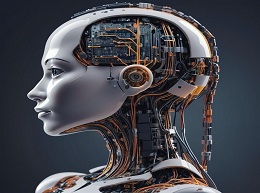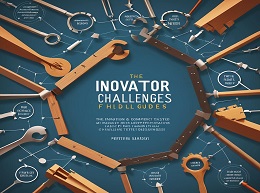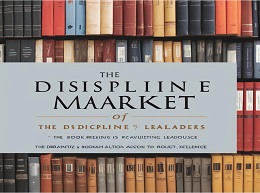Unscaled: How AI and a New Generation of Upstarts are Creating the Economy of the Future

Unscaled: How AI and a New Generation of Upstarts are Creating the Economy of the Future - A Comprehensive Review
"Unscaled: How AI and a New Generation of Upstarts are Creating the Economy of the Future" by Hemant Taneja with Kevin Maney offers a thought-provoking examination of how technological advancements, particularly in artificial intelligence (AI), are transforming traditional business models and the economy at large. This review delves into the key concepts of the book, highlights illustrative examples, and explores the implications of the unscaled economy for businesses and society.
The Unscaled Economy
The central thesis of "Unscaled" is that the era of large-scale mass production and consumption is giving way to a new economy where customization, agility, and innovation are paramount. This shift is driven by AI and other technological advancements that enable even small startups to compete with established giants by leveraging scalable, on-demand resources.
The End of Scale: A Paradigm Shift
Traditionally, businesses aimed to achieve economies of scale to reduce costs and increase efficiency. However, Taneja argues that this model is becoming obsolete. In the unscaled economy, the focus shifts from scaling up to scaling down, where companies can tailor their offerings to meet the specific needs of individual customers or niche markets.
Example: Airbnb
Airbnb exemplifies this shift. Instead of building large hotels, Airbnb uses technology to connect travelers with hosts offering unique accommodations. This model allows for a highly personalized travel experience that traditional hotel chains cannot easily replicate. By leveraging a platform that scales with demand, Airbnb can serve millions of customers worldwide without owning a single property.
AI: The Catalyst for Unscaling
AI plays a crucial role in enabling the unscaled economy. It allows businesses to analyze vast amounts of data, automate processes, and provide personalized experiences at scale.
Personalization and Customization
AI's ability to personalize products and services is a game-changer. Companies can now offer customized solutions that cater to the unique preferences and needs of each customer.
Example: Netflix
Netflix uses AI algorithms to analyze viewing habits and recommend content tailored to individual users. This level of personalization has been key to Netflix's success, keeping users engaged and reducing churn.
Efficiency and Innovation
AI also drives efficiency and innovation by automating routine tasks and enabling companies to experiment with new ideas rapidly.
Example: Tesla
Tesla uses AI to continuously improve its autonomous driving technology. The data collected from millions of miles driven by Tesla vehicles is analyzed to enhance the AI algorithms, making the cars safer and more efficient over time.
New Business Models: Platforms and Ecosystems
In the unscaled economy, platforms and ecosystems replace traditional hierarchical business structures. These platforms facilitate interactions between users and providers, creating value through network effects.
Example: Uber
Uber operates as a platform connecting drivers with riders. This model allows Uber to scale rapidly without owning a fleet of vehicles. The platform's efficiency and convenience have revolutionized urban transportation.
Example: Amazon Web Services (AWS)
AWS provides scalable cloud computing resources to businesses of all sizes. Startups and established companies alike use AWS to build and deploy applications without investing in expensive infrastructure. This democratization of technology resources fosters innovation and reduces barriers to entry.
The Rise of Upstarts: Leveraging Technology
Startups and small businesses, referred to as "upstarts" in the book, are leveraging AI and other technologies to disrupt traditional industries and create new markets.
Example: Lemonade
Lemonade, an insurtech startup, uses AI to streamline the insurance process. By automating claims processing and underwriting, Lemonade can offer competitive rates and a seamless user experience. This disruption of the insurance industry demonstrates the power of technology to transform even the most established sectors.
Example: Warby Parker
Warby Parker disrupted the eyewear industry by selling glasses directly to consumers online. Using AI and data analytics, the company optimizes its supply chain and marketing strategies, providing high-quality eyewear at lower prices than traditional retailers.
Societal Implications: Opportunities and Challenges
The unscaled economy presents numerous opportunities but also poses significant challenges. As AI and technology reshape industries, they impact employment, privacy, and regulation.
Employment and Skills
AI automation threatens to displace jobs, particularly those involving routine tasks. However, it also creates new opportunities in technology, data analysis, and other fields.
Example: The Gig Economy
The rise of platforms like Uber and TaskRabbit has given rise to the gig economy, offering flexible work opportunities. While this model provides convenience and independence, it also raises questions about job security and benefits.
Privacy and Ethics
The use of AI and data analytics raises important ethical considerations, particularly regarding privacy and data security.
Example: Facebook and Cambridge Analytica
The scandal involving Facebook and Cambridge Analytica highlighted the potential for misuse of personal data. This incident underscores the need for robust data protection regulations and ethical standards in the unscaled economy.
Regulation and Governance
Governments and regulators face the challenge of keeping pace with rapid technological advancements. Ensuring fair competition, protecting consumer rights, and fostering innovation require a delicate balance.
Example: GDPR
The European Union's General Data Protection Regulation (GDPR) represents a significant step towards protecting personal data and privacy. Similar regulations may become more common as the unscaled economy evolves.
Embracing the Unscaled Future
"Unscaled" offers a compelling vision of the future, where AI and innovative startups redefine how we live and work. The unscaled economy promises greater personalization, efficiency, and opportunity but also requires thoughtful consideration of its broader impacts.
For businesses, the key to thriving in this new era lies in embracing flexibility, leveraging technology, and fostering a culture of continuous innovation. By understanding and adapting to the principles outlined in "Unscaled," companies can position themselves for success in the economy of the future.
Final Thoughts: Practical Takeaways
To implement the unscaled principles effectively:
- Embrace Technology : Invest in AI and data analytics to drive innovation and efficiency.
- Focus on Personalization : Tailor products and services to meet the unique needs of your customers.
- Adopt Platform Models : Build or leverage platforms that facilitate interactions and create network effects.
- Prepare for Change : Stay agile and ready to adapt to new technological and market developments.
- Consider Ethical Implications : Ensure that your use of technology aligns with ethical standards and regulatory requirements.
By adopting these strategies, businesses can harness the power of AI and the unscaled economy to drive growth and create value in the rapidly evolving marketplace.













